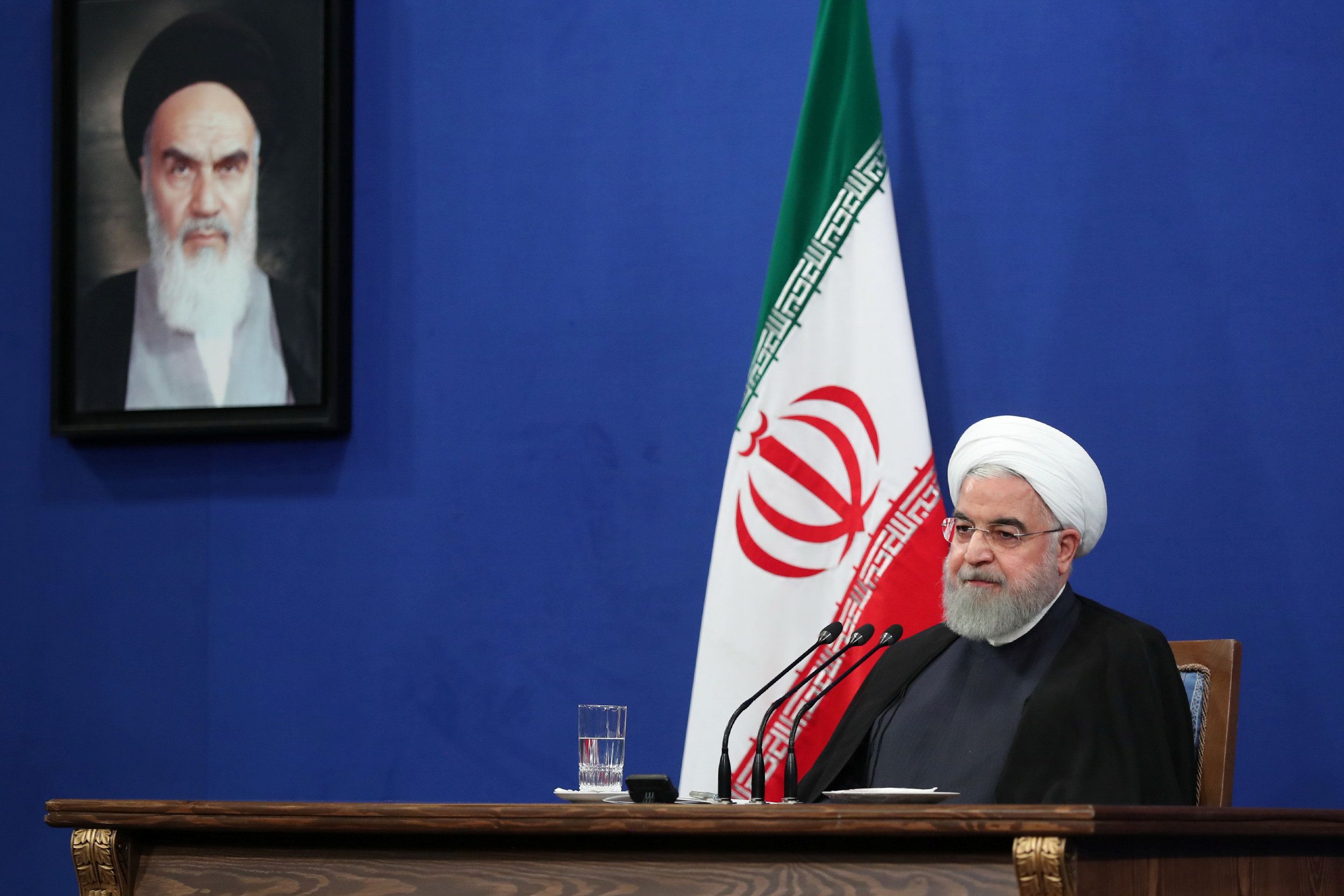November 05, 2019
Iran steps further from the nuclear deal — Iran will restart uranium enrichment at its underground nuclear facility at Fordow, President Hassan Rouhani said on Tuesday, pulling Tehran further away from the landmark 2015 nuclear deal that restricted the country's use of centrifuges. Iran will now begin injecting uranium gas into more than 1,000 centrifuges. While Tehran has steadily been violating more aspects of the agreement since President Trump withdrew from it last year and imposed crippling sanctions on Iran's economy, this is a serious step because it reduces the "breakout time" that Iran needs in order to build a working bomb. That poses a serious dilemma for the deal's other five signatories — Germany, France, the UK, Russia and China — which have tried to safeguard the agreement: they must now decide when Tehran's breaches become "critical," and how to react when they do.
India pulls out of a big trade deal – In the end, Indian Prime Minister Narendra Modi walked away from the Regional Comprehensive Economic Partnership, the massive China-backed Asian trade deal that we flagged last week. RCEP would have freed up the flow of goods between 16 different countries accounting for one third of global economic output, including India and China. It'll now soldier on with 15 members, including China, but with India on the outside. Some commentators immediately drew parallels with President Trump's decision in 2017 to abandon the Trans-Pacific Partnership, a deal that Trump said was bad for American jobs despite its supporters' argument that it was important for US power in the Pacific. Like Trump, the benefits for Modi of walking out are mainly domestic - India's politically important farmers and manufacturers who feared a flood of cheap Chinese imports welcomed the move – while the downsides are mainly geopolitical: reduced influence and credibility in Asia.
A new prime minister in Romania – Romania's parliament narrowly approved a transitional government on Monday, making Ludovic Orban, a member of Romania's center-right National Liberal Party, the country's fourth prime minister since 2016. Orban replaces Social Democrat Viorica Dancila, who was ousted in a no-confidence vote last month, one of a string of setbacks that have hit the increasingly unpopular Social Democrats since they took charge of the government in 2016. With Orban (no relation to the Hungarian Prime Minister of the same name) now in charge of a minority government, Romania has an opportunity – albeit a fragile one – to hit reset on years of political dysfunction. Top of the agenda: decide on a new nominee for the European Commission, whose appointment has been held up after Romania's earlier appointee to the European Union's main executive body was rejected due to potential conflicts of interest.
What We're Ignoring:
Attempts to reassure us about Polish nuclear cannibal ants – There's good news and bad news here. First, the bad news: millions of wood ants that resorted to cannibalism after they fell into a pitch-black abandoned Soviet nuclear bunker in Poland years ago have escaped after scientists studying the colony built a wooden bridge that allowed them to get back to the surface. The good news, according to the scientists, is that even though this sounds the setup for a B-grade horror-action flick, the ants stopped eating each other after they rejoined their old nest above ground. We're ignoring these reassurances and will be steering clear of the nuclear cannibal ants for the foreseeable future.
More For You
Most Popular
With the US leading production and China driving new reactor development, Bank of America breaks down the who, what, where, when, and why behind nuclear’s return. Stay ahead of global energy trends with Bank of America Institute.
Chris, an Army veteran, started his Walmart journey over 25 years ago as an hourly associate. Today, he manages a Distribution Center and serves as a mentor, helping others navigate their own paths to success. At Walmart, associates have the opportunity to take advantage of the pathways, perks, and pay that come with the job — with or without a college degree. In fact, more than 75% of Walmart management started as hourly associates. Learn more about how over 130,000 associates were promoted into roles of greater responsibility and higher pay in FY25.
Last week, at the Munich Security Conference, a group of global technology providers, including Microsoft, announced the Trusted Tech Alliance — committed to shared, verifiable principles for trusted, transparent, and resilient technology across borders. At a moment of economic volatility and zero-sum technological competition, countries and customers are demanding greater accountability from technology providers. The Alliance addresses this by bringing together companies from across Africa, Asia, Europe, and North America around shared commitments: transparent governance, secure development practices, supply chain oversight, open digital ecosystem, and respect for the rule of law — ensuring the benefits of emerging technologies strengthen public trust while driving job creation and economic growth. Explore the Trusted Tech Alliance here.
© 2025 GZERO Media. All Rights Reserved | A Eurasia Group media company.
